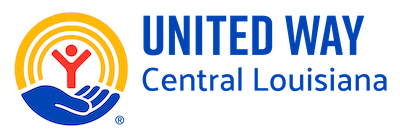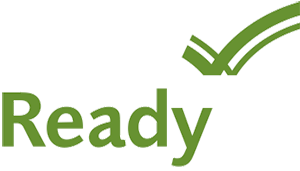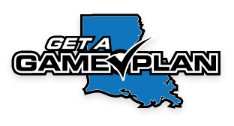
It is in times of need that we discover the full impact of a community united. United Way of Central Louisiana plays a key role in disaster response and relief. We ensure our first responders can act swiftly with minimal barriers. United Way of Central Louisiana has the experience and networks to assist.
How We Help
The United Way of Central Louisiana network is uniquely positioned to provide on-the-ground disaster response, including raising funds; providing resources like food, water and shelter; mobilizing volunteers; and engaging local partners to ensure community stability. United Way is also proud to partner with the American Red Cross, Volunteers of America and many others who are helping with immediate relief and evacuations.
211 is a community go-to resource. 24 hours a day, seven days a week, 211 specialists connect callers with the help they need. During times of disaster, 211 supports communities before and during disasters. That might be directing people to evacuation routes and shelters beforehand, or helping people get food, water and emergency supplies afterwards.
Preparing for a Disaster
Often, the most important part is surviving a disaster is being prepared. Take the time to make a plan today. You're whole family needs to be involved in the planning and execution process.
Use the following resources to make the best plan for your family:
To assemble your kit store items in airtight plastic bags and put your entire disaster supplies kit in one or two easy-to-carry containers such as plastic bins or a duffel bag.
A basic emergency supply kit could include the following recommended items:
- Water (one gallon per person per day for at least three days, for drinking and sanitation)
- Food (at least a three-day supply of non-perishable food)
- Battery-powered or hand crank radio and a NOAA Weather Radio with tone alert
- Flashlight
- First aid kit
- Extra batteries
- Whistle (to signal for help)
- Dust mask (to help filter contaminated air)
- Plastic sheeting and duct tape (to shelter in place)
- Moist towelettes, garbage bags and plastic ties (for personal sanitation)
- Wrench or pliers (to turn off utilities)
- Manual can opener (for food)
- Local maps
- Cell phone with chargers and a backup battery
**Keep into consideration COVID-19 precautions such as masks, hand sanitizer, etc.
Click Here for a printable PDF checklist.
Responding to a Disaster
In Central Louisiana, our number one disaster response is to hurricanes.
Hurricanes can cause:
- widespread destruction
- power outages
- flooding
Planning ahead can make all the difference.
Hurricane season is from June 1 - November 30.
1. Choose to stay or evacuate.
2. Have your plan ready.
3. If staying in your home, plan for power outages and generator safety.
4. Stay informed.
Monitor the local news and social media platforms to get updates on the predicted impact to Central Louisiana. Cenla Ready, managed by the City of Alexandria, Louisiana is your local resource for information before, during, and after emergencies. Visit State of Louisiana GOHSEP's website for statewide notification/warning system details.
A tornado can:
- Happen anytime and anywhere.
- Bring intense winds, over 200 miles per hour.
- Look like funnels.
IF YOU ARE UNDER A TORNADO WARNING, FIND SAFE SHELTER RIGHT AWAY
- If you can safely get to a sturdy building, then do so immediately.
- Go to a safe room, basement, or storm cellar.
- If you are in a building with no basement, then get to a small interior room on the lowest level.
- Stay away from windows, doors, and outside walls.
- Do not get under an overpass or bridge. You’re safer in a low, flat location.
- Watch out for flying debris that can cause injury or death.
- Use your arms to protect your head and neck.
For more information, visit https://www.ready.gov/tornadoes.
Monitor the local news and social media platforms to get updates on the predicted impact to Central Louisiana. Cenla Ready, managed by the City of Alexandria, Louisiana is your local resource for information before, during, and after emergencies. Visit State of Louisiana GOHSEP's website for statewide notification/warning system details.
Floods may:
- Result from rain, snow, coastal storms, storm surges and overflows of dams and other water systems.
- Develop slowly or quickly. Flash floods can come with no warning.
- Cause outages, disrupt transportation, damage buildings and create landslides.
Failing to evacuate flooded areas or entering flood waters can lead to injury or death.
If you are under a flood warning:
- Find safe shelter right away.
- Do not walk, swim or drive through flood waters. Turn Around, Don’t Drown!
- Remember, just six inches of moving water can knock you down, and one foot of moving water can sweep your vehicle away.
- Stay off bridges over fast-moving water.
Fore more information, visit https://www.ready.gov/floods.
Monitor the local news and social media platforms to get updates on the predicted impact to Central Louisiana. Cenla Ready, managed by the City of Alexandria, Louisiana is your local resource for information before, during, and after emergencies. Visit State of Louisiana GOHSEP's website for statewide notification/warning system details.
Disaster Relief
Small and large natural disasters impact our community every year. Whether you experienced a house fire, a hurricane, a flood, or another type of disaster, we are here to help. Our 2-1-1 service can provide you with all the resources you need before, during and after a disaster.
Additional Resources
When disasters receive an official declaration from the federal government, individuals impacted by that disaster may be eligible for individual assistance through the Federal Emergency Management Agency (FEMA).
STEP 2
If eligible, apply online and use the same site to check the status of your application.
STEP 3
FEMA offers other disaster assistance. Learn more about all the FEMA Individual Assistance options here.
When disaster strikes, the American Red Cross manages local networks of affiliates to meet the immediate disaster-caused needs of individuals, families, and communities.
![]()
Visit the American Red Cross website to find a shelter and apply for assistance.
![]()
Call 1-866-438-4636 to talk to a Red Cross Representative.



